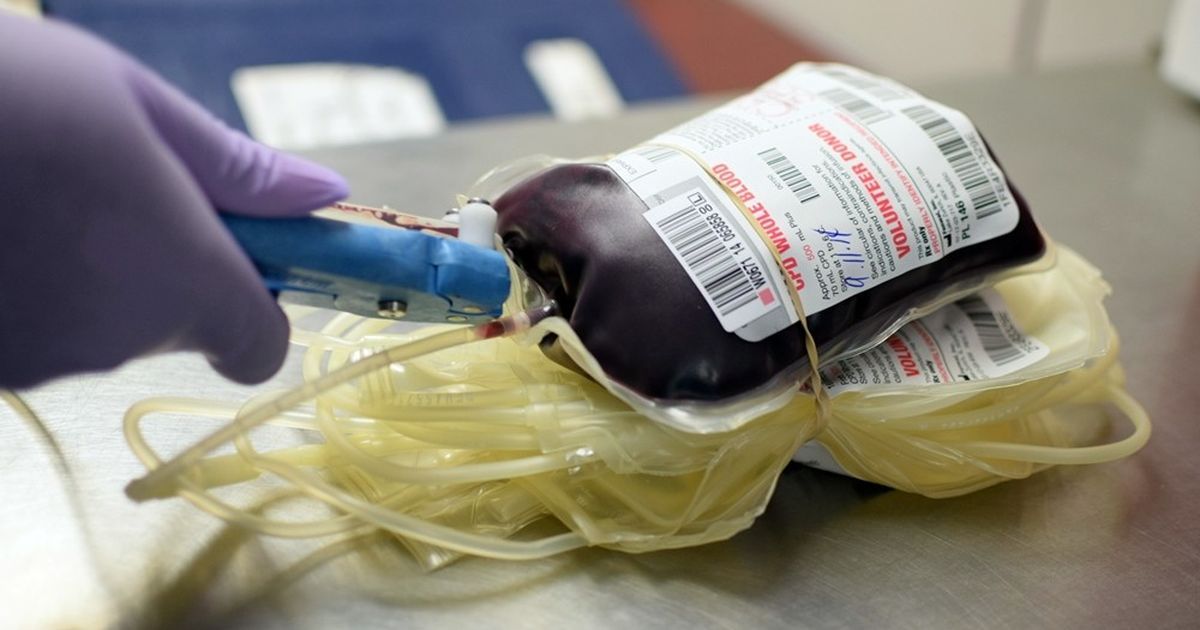
Persistence of anaemia in Tamil Nadu a cause for concern

After the incident where a blood transfusion in Tamil Nadu resulted in a pregnant woman getting HIV, and in the death of the young donor, the vigil on blood testing and transfusion has been intensified. However, many forget to look at the larger picture.
According to doctors, more than 60% of women in India suffer from iron deficiency anaemia. In Tamil Nadu, particularly, maternal anaemia is a persistent problem. The pregnant woman had received the transfusion when she had been getting treated for anaemia.
Though maternal anaemia is preventable, most pregnant women in the state do not seem to be aware of being anaemic. If identified in the first trimester, women will be given iron supplements to treat the condition. However, a majority of women do not visit primary health centres (PHC), and are left out of universal screening programme, leading to anaemia going undetected.
According to National Family Health Survey 4 (2015-2016), in Tamil Nadu, the number of women who had antenatal (also known as prenatal) check-ups done during the first trimester had gone down to 64% from 75.3% in 2005-2006 (NFHS 3 survey). The national average stands at 58.6% compared to 43.9% in NFHS 3. The percentage of women who had at least four antenatal care visits in the state has dropped to 81.1 from 87.4 in 2005-2006.
First trimester screening a must
Medical practitioners say insufficient awareness could be the reason behind the drop. “Even if pregnant women are screened for anaemia in the first trimester, we should keep educating them or there is a chance that they could miss their visits to the hospitals,” says Dr. Reeta Vijaya Selvi, gynecologist, Christian Medical College, Vellore.
“Even though South Indian states are performing better when compared to northern states, Tamil Nadu did not achieve ‘anaemia-free’ status as we don’t have cent percent antenatal care coverage. Maternal anaemia is a preventable condition, but we are not looking into the root cause of the problems like economic background of the women’s family, their nutritional intake, non-availability of continuous monitoring such as ensuring intake of iron supplements,” she added. Interestingly, Vellore has recorded 93% antenatal check-up by women in the first trimester, highest in the state.
Doctors say iron supplement intake from the third month of pregnancy could improve hemoglobin levels within a month. So, there are chances that their hemoglobin levels will improve by the eighth month.
“Since iron demand is higher during pregnancy, we prescribe iron tablets even to women who are not anaemic. They need to take one 100mg iron tablet a day for 100 days. Then their hemoglobin levels will increase by one gram per week approximately” Reeta said.
Monitoring needed
In Tamil Nadu, 40% of women are mildly anaemic, out of which, 1.4% has severe anaemia. While iron supplements are enough for women with mild anaemia, those with severe anaemia might need blood transfusions as a last resort. “But blood transfusion is not the solution for persistent maternal anaemia in the state” says Dr. J. Amalorpavananthan, former Member Secretary, Transplant Authority of Tamil Nadu.
He adds that continuous monitoring to check if the women are taking the iron supplements is important since they might discontinue the pills due to side effects like nausea, vomiting and constipation.
Dr. Shanthi, gynaecologist, Doctors Association for Social Equality, says the drop in antenatal visits could be a ‘sampling error’. “Compared to other states, institutional births are high in Tamil Nadu. The decrease in the percentage of antenatal visits could be an effect of random sampling. Also, most of the first pregnancies happen in the private hospitals. Hence, those women do not come under the government’s purview.”
In another worrying trend, the prevalence of anaemia among women of reproductive age (15 years to 49 years) in Tamil Nadu has increased from 53.2% in 2005-2006 to 55%. The national average of the same, however, has dropped to 53.1% from 55.3% in NFHS 3 survey.
Sanitation-induced anaemia
We cannot say that iron deficiency is the only cause of anaemia among women, says Dr. L. Yesodha, state vice-president, Indian Medical Association (IMA), Chennai chapter.
The IMA, in 2018, had launched a programme called ‘Mission Pink Health’ in a bid to eliminate anaemia.
“Anaemia can also be caused by infestations of worm such as hookworms, roundworms and tapeworms. By deworming, anaemia can be prevented. Under the mission, adolescent girls in schools are given deworming tablets. Pregnant women in the seventh and eighth months are also given these tablets” said Yesodha.
Health officials say worm infestations happen mainly due to open defecation. Dr. Kolandasamy, director, Public Health and Preventive Medicine, says, “In most of the cases, poor sanitation is the main reason for contracting anaemia. People defecate in the open and walk without footwear on ground contaminated with faecal matter. Hookworms, which can be present in the soil for five years, are transmitted to the individual and start absorbing blood. We provide albendazole tablets in the government schools for deworming”.
It is to be noted that the state government had recently claimed ‘open defecation free’ status under the Swachh Bharat Mission. When asked if this had had any positive impact on public hygiene, Kolandasamy said, “Yes, construction of toilets has had an impact. Generally, we see many diarrhea and cholera cases in Tiruvarur and Nagappattinam districts because of poor sanitation. But, in the aftermath of Cyclone Gaja, we have had almost no diarrhea and cholera cases. However, the full benefits of the Swachh Bharat Mission will be realized only after 5 years. Because mere construction of toilets will not provide any good, unless we educate the people on the importance of toilet usage.”

